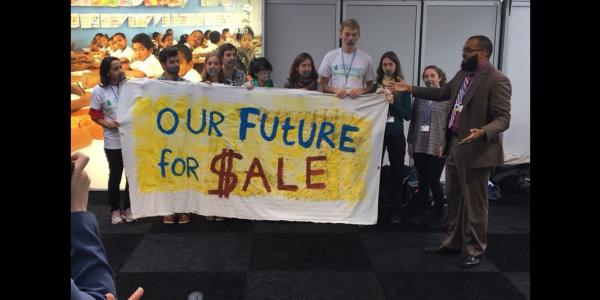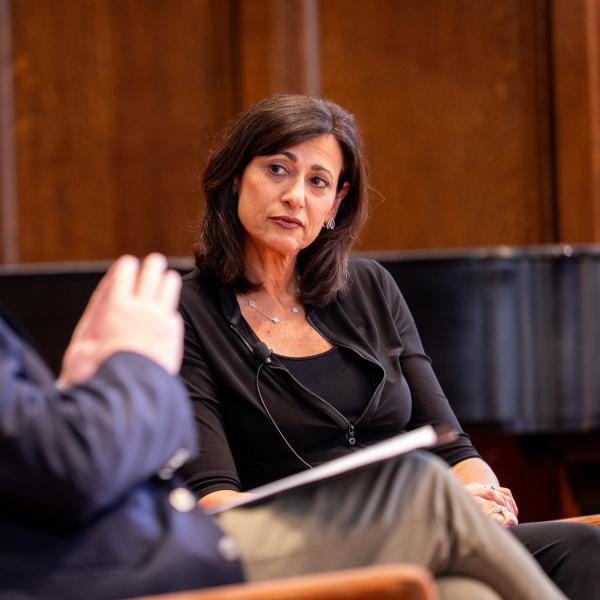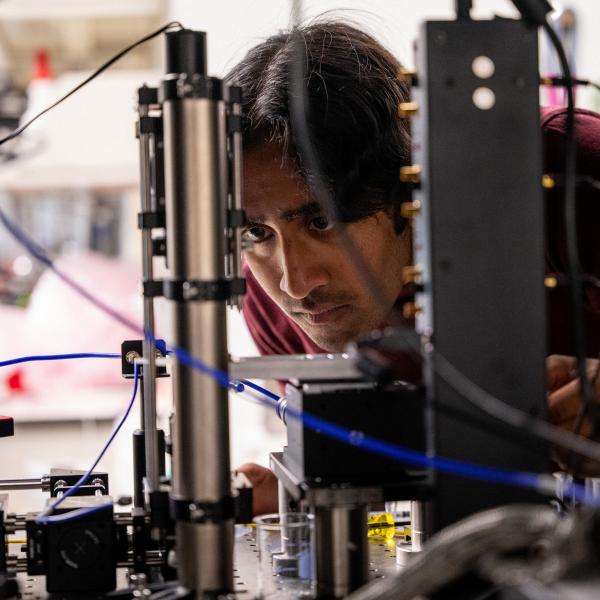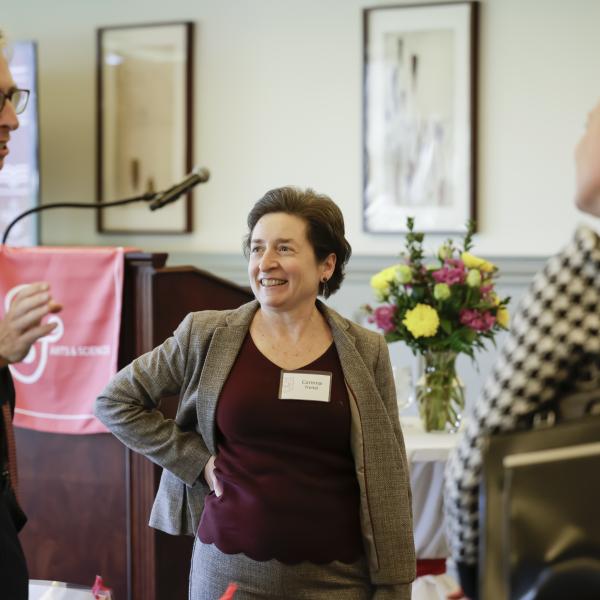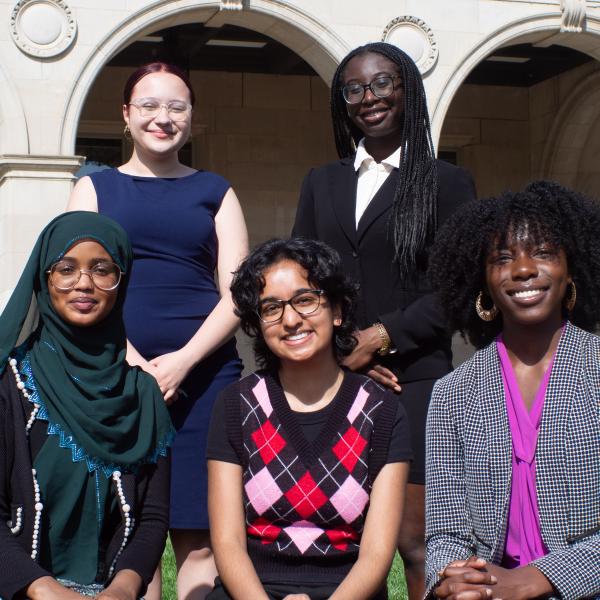Senior Hannah Greenhouse and five other students recently attended the COP23 climate conference in Bonn, Germany. She reflects on the experience and the fact that nothing can quite prepare you for being in the same room with 197 countries as they debate the international law that governs climate change policy.
Since 2011, 42 Washington University students have attended the UN Climate Change Conference (or Conference of the Parties (COP)) in Durban, South Africa; Doha, Qatar; Warsaw, Poland; Lima, Peru; Paris, France; and Marrakesh, Morocco. With the support of the International Center for Energy, Environment and Sustainability (InCEES), 6 students, including myself, attended COP23 this November in Bonn, Germany. No matter the number of acronyms you cram into your brain or the months of studying greenhouse gas emissions, nothing can quite prepare you for being in the same room with 197 countries as they debate the international law that governs climate change policy.
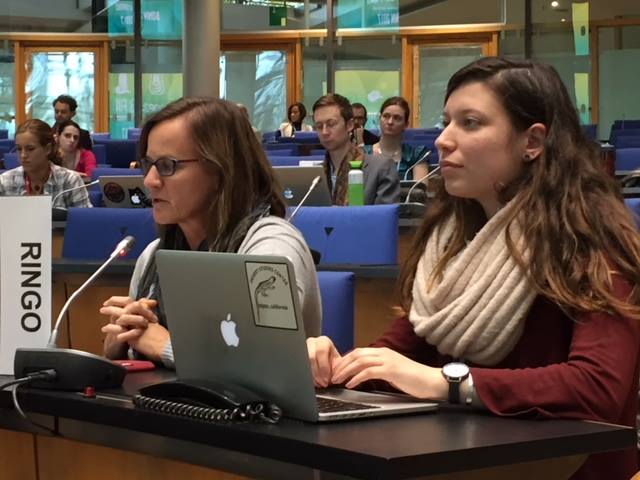
This year’s COP was hosted by Fiji, a small island nation whose citizens are facing the catastrophic effects of climate change every day. Negotiators stressed the importance of countries lowering their carbon-emissions to limit global temperature rise, and the need to provide funding to help the most vulnerable nations, including Fiji, adapt to a changing climate. Hearing from people who are losing their homes, communities, and way of life due to rising greenhouse gas emissions makes the effects of climate change no longer theoretical. Instead, they are incredibly real, standing right in front of you at the podium.
From day one there was an elephant in the room. The US is the only UN member state that has said they will not follow the guidelines delineated in the Paris Agreement. By following the procedures in the Paris Agreement, countries are tasked with lowering their carbon emissions so that they can do their fair share in hopefully limiting temperature rise to 1.5 degrees Celsius. With the US, one of the largest contributors to greenhouse gas emissions, not abiding to the carbon-reduction requirements and monetary contributions, I had low expectations of what could be accomplished.
It was abundantly clear throughout the Conference that the international community was stepping up to the plate. Individuals, local governments, religious organizations, and NGOs had flocked to Bonn to show negotiators just how important international climate policy was. From a woman who was part of the Third World Network speaking about the importance of equity to former Vice President Al Gore proclaiming the need to invest in the sustainable revolution, I learned that it is not just federal governments at the helm of implementing climate change policy. We all are.
While COP23 proved how important it is for each country to do their fair share in reducing emissions, it does not stop there. I saw the importance of non-state actors in combating the effects of climate change and helping those who are the most affected. And finally, I learned the role that every individual can undertake in reducing their carbon emissions and the obligation we have to take on that responsibility. I left COP23 with a better understanding of what I can do in preventing the harmful effects of climate change, whether or not the federal government is on board.
Participation in the climate negotiations occurs through application based acceptance into Environmental Studies Seminar 452: International Climate Negotiations led by Beth Martin, Senior Lecturer in Environmental Studies, and supported this year by Scott Krummenacher, Lecturer in Environmental Studies. The class and COP attendance are generously supported by InCEES, the Environmental Studies Program, and the Washington University Climate Change Program (WUCCP).
Top photo caption: "These YOUNGOs (youth NGOs) made a statement in the morning about how our future is being sold to fossil fuel and other destructive industries and that cries of concern coming from young people are not being listened to. They highlighted that youth are not considered in the decisions which will drastically influence the rest of our lives. As students here, we need to think about how we can raise our voices and be listened to by our governments and institutions, which should work for our best interest." - from Ingrid Archibald post on the WashU at COP Facebook page
